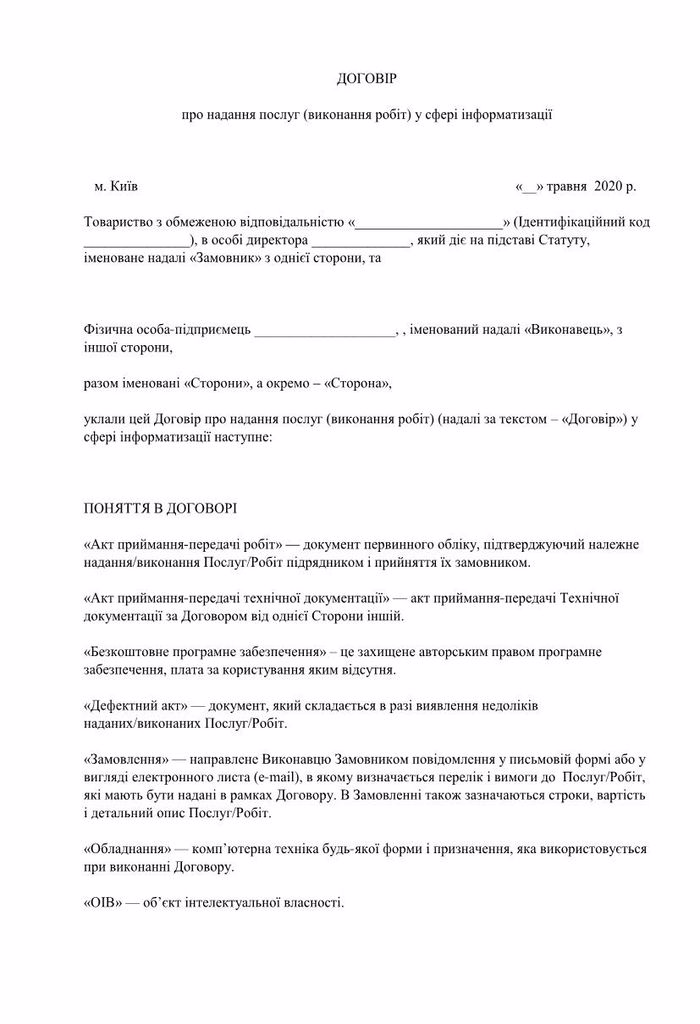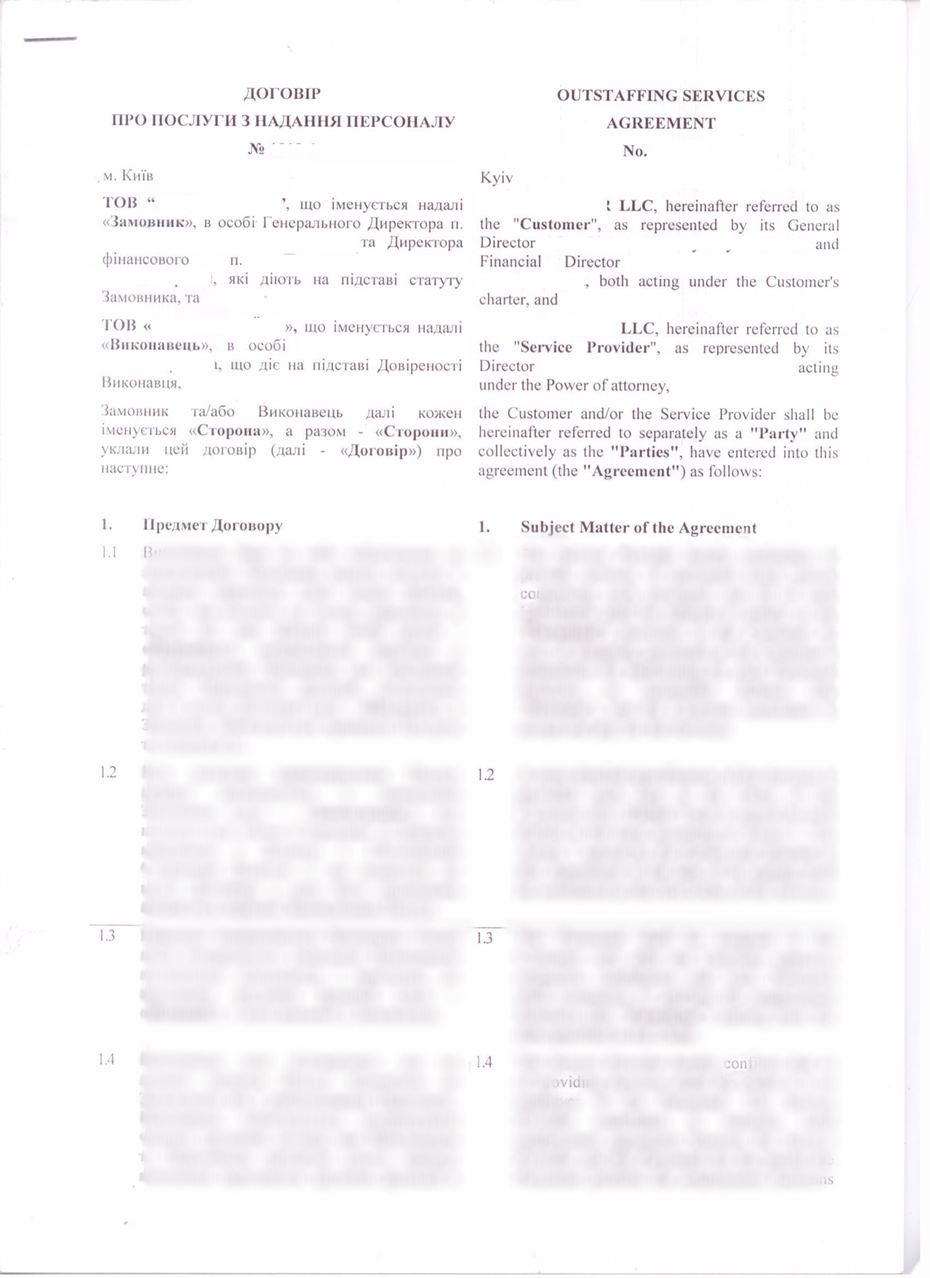Is it possible to draw up an employment agreement in foreign currency and get paid a salary in foreign currency in Ukraine?

Many employers would like to set and pay salary to their employees not in hryvnia, but in foreign currency. But that begs the question, whether such arrangements are allowed by law and how they are regulated?
Today we will talk about the persons that can be paid in foreign currency in Ukraine and how to legally arrange this in the agreement.
You may also like: FAQ: What To Do In Case Of Search In IT Company?
Who can be paid a salary in foreign currency in Ukraine?
In Ukraine, all payments shall be made in the national currency, but there are no provisions of law that expressly prohibits from making settlements in foreign currency.
However, salary to residents shall be paid only in hryvnias. You can see the provisions of law confirming this fact here.
The current legislation stipulates that Ukrainian Hryvnia is the only legal means of payment in Ukraine, unless otherwise stated.
The otherwise refers to the payment of salaries to non-residents.
That is, only foreign workers can be paid a salary in foreign currency. In turn, resident workers (Ukrainians) shall receive salary only in hryvnias.
But does this mean that Ukrainians should forget about getting paid in foreign currency? Not really, because the law prohibits from paying salary in foreign currency, but not from setting salary rate in foreign currency. So, salary rate can be set in foreign currency, and the employees shall be paid in Ukrainian Hryvnia.
This point shall be negotiated in advance between the employer and the employee.
Related article: Possible Alternatives To Outstaffing In Ukraine
What exchange rate should be used when setting salary in foreign currency?
Tax legislation states that in case of payroll calculation in foreign currency, salary shall be recalculated in Ukrainian Hryvnia at the NBU’s (the National Bank of Ukraine) exchange rate as of the date of payroll accounting.
According to the generally established rule, it is possible to use:
- the exchange rate established on any day of the month when the salary is paid;
- the exchange rate of any bank;
- the exchange rate forecasted when forming the state budget for the year.
The main thing is to agree upon the exchange rate and stipulate it in the relevant document.
Lawyers advise to use the exchange rate established as of the first days of the month in which the salary is paid. This will help, for example, to properly calculate the advance payment. If you specify that the exchange rate as of the last day of the month shall be used, it will be extremely difficult to calculate the amount of salary in advance, and impossible to pay the advance payment.
The Supreme Court of Ukraine has ruled that the salary rate, which is paid in hryvnia, but set in foreign currency, meets the legal requirements.
You may also like: Personal Data Protection. GDPR
What to do if the currency rate has fallen and the salary is set in US dollars (or other foreign currency)?
An employee may perform the same volume of work, but due to currency fluctuations he/she may receive a lower amount of salary. How to avoid this?
Such cases may be treated as worsening of the employee’s working conditions. Since the originally set salary is a mandatory amount that must not be reduced.
If the employer does not take into account the exchange rate specified in the agreement and pays a lower amount due to a fall in the exchange rate, the employee may file a complaint with the court and ask for a refund of the amount by which the salary was reduced.
In this case, the employer shall also pay a penalty in the amount of 1 minimum wage, which amounts to UAH 4,723 since 01.01.2020. If such offense is committed repeatedly or in respect of a minor, pregnant or disabled person, the employer will be charged a penalty in the amount of UAH 1,700-5,100.
Please note! These penalties may be applied both to legal entities and individual entrepreneurs.
Related article: Outstaffing. Our Company’s Experience
How to protect yourself when your salary is set in foreign currency in the employment agreement?
In order to avoid risky situations, it’s worth setting a lower limit for the amount of salary.
For example, you should prescribe in the employment agreement that the salary is set in a certain currency and paid in UAH calculated at the exchange rate as of the month in which the salary is paid, but not lower than the exchange rate at which the salary was calculated last month.
The wage rate is one of the main conditions of work. It may be reduced at the employer’s discretion only in case of changes in the organization of production and work not earlier than 2 months after notification of the employee.
Example. The employee was hired on 01.01.2019. The salary is 500 dollars. An agreements concluded with the employer states that the salary is paid in Ukrainian Hryvnia at the NBU’s exchange rate as of the first day of the month in which the salary is paid, but not below the exchange rate used for salary calculation in the last month.
As of 01.01.2019, the exchange rate of Ukrainian Hryvnia to US Dollar is UAH 27.6883. Let’s count the salary for January: 500 x 27.6883 = UAH 13,844.15 UAH.
As of 01.02.2019, the UAH/USD exchange rate is UAH 24.6883. Let’s count the salary for February - 500 x 24.6883 = UAH 12,344.15.
The exchange rate in February is lower than in January. That is, the salary for February should be calculated at the exchange rate of January. In this case, an employee shall be paid UAH 13,844.15 for February.
Thus, employers may set and pay salary to non-resident employees in foreign currency, while in case of resident employees, they may only set the wage rate in foreign currency, but shall pay it in Ukrainian Hryvnia. This process has its nuances, pitfalls, so you need to be careful and far-sighted.
Our lawyers will help you solve all sensitive HR-related issues, as well as tell you how to properly keep human resources documentation.
If you want to be sure that your agreements and all employment issues are solved correctly, don’t hesitate to call us!
Our clients









